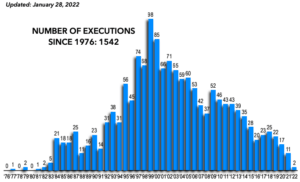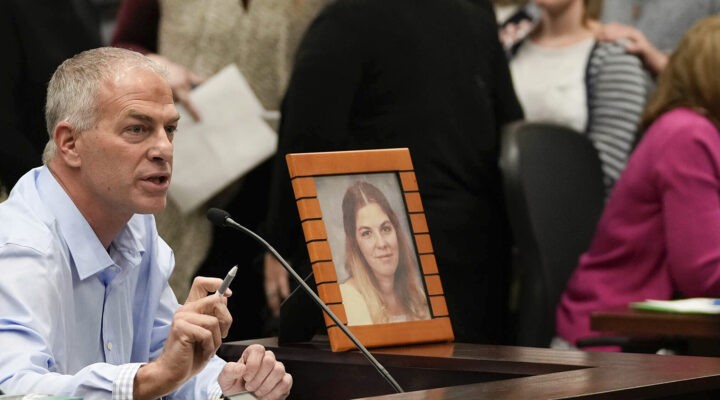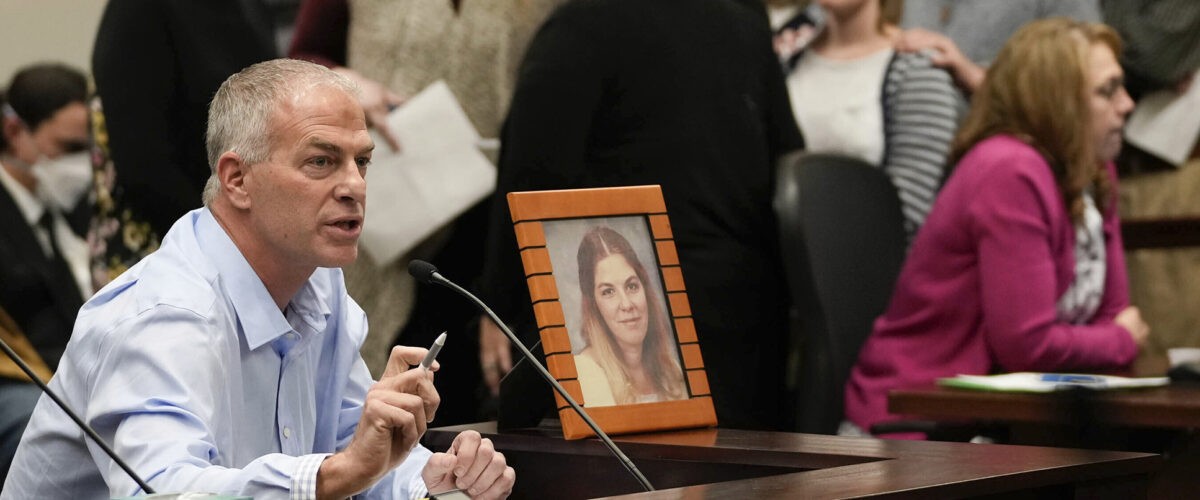A bill that would end capital punishment in Utah stalled in a state legislative committee Feb. 14, leaving death penalty opponents saddened but determined to carry on their fight for abolition.
House Bill 147 was voted down 5-6 during a hearing of the Utah House Law Enforcement and Criminal Justice Committee in Salt Lake City.

Sam Heath
But there have been far too many positive developments in the multi-state campaign against capital punishment to lose hope over the temporary setback in Utah, said Sam Heath, manager of the Equal Justice USA Evangelical Network.
“One hopeful sign is the national trend of moving toward death penalty repeal,” Heath said. “And seeing the Utah bill come that close to approval is exciting, just like it was exciting to see Virginia end its death penalty in 2021.”
The tight vote is especially encouraging because Utah is a heavily Republican state, said Demetrius Minor, national manager of Conservatives Concerned About the Death Penalty. “Though we are disappointed by the committee vote, we are encouraged that another deeply conservative state is seriously considering ending capital punishment.”
The Utah bill faltered after more than three hours of graphic testimony from the relatives of homicide victims, some of whom labled death row inmates as “monsters” who deserve to die for their crimes.
“The Utah bill faltered after more than three hours of graphic testimony from the relatives of homicide victims, some of whom labled death row inmates as ‘monsters’ who deserve to die for their crimes.”
But others argued against executions, saying the drawn-out appellate process is terrible to endure.
Sharon Wright Weeks, the relative of two homicide victims, said she had come to question the fairness of the death penalty, while the lead sponsor of the bill, Republican Rep. Lowry Snow, said capital punishment leaves open the possibility of executing innocent people, the Deseret News reported.
The Death Penalty Information Center reports that the number of exonerations — 185 — supports that concern.
“The data now show that for every 8.3 people who have been put to death in the U.S. since executions resumed in the 1970s, one person who had been wrongfully convicted and sentenced to death has been exonerated,” the center said. “Wrongful capital convictions occurred in virtually every part of the country, with exonerations documented in 29 states and 118 different counties.”
Nearly 70% of exonerations involved convictions tainted by some form of official misconduct, whether on the part of police, prosecutors or other officials, and half involved both misconduct and false testimony against the accused.
“A new examination of exonerations involving DNA evidence suggests that many more innocence cases remain undetected because DNA evidence was unavailable or courts refused to permit testing,” the statement added.
This all adds up to an unjust system that violates the values of true conservativism, Minor declared. “The death penalty goes against conservative principles of limited government, fiscal responsibility and valuing life. Instead, Utah will continue to waste precious taxpayer resources on a broken system that protects no one and ignores the needs of those most impacted by violence.”
Heath said the practice also violates Christian — and specifically evangelical — values, as does labeling human beings as “monsters.”
“That kind of language is very dehumanizing. But the theology of evangelicals is a humanizing theology of hope and of moving forward,” he countered.
 Even more hope lies in the trends related to capital punishment, he continued. Seven states have ended the practice since 2009, including New Hampshire in 2019, Colorado in 2020 and Virginia in 2021, and three states — California, Oregon and Pennsylvania — are under governor-imposed moratoria, according to the Death Penalty Information Center.
Even more hope lies in the trends related to capital punishment, he continued. Seven states have ended the practice since 2009, including New Hampshire in 2019, Colorado in 2020 and Virginia in 2021, and three states — California, Oregon and Pennsylvania — are under governor-imposed moratoria, according to the Death Penalty Information Center.
Execution rates are declining in the 23 states that still have capital punishment statutes on the books, from 43 in 2001 to 11 last year.
“As evangelicals, we want to shift the narrative to talk about being holistically pro-life,” Heath said. “A message like that, over time, is going to land.”
Related articles:
Panel of faith leaders will raise awareness of death penalty injustice
The death penalty is dying a slow death; it’s time we pull the plug | Opinion by Stephen Reeves
It’s official now: Death penalty no more in Virginia
American support for death penalty remains low, as new debates arise in Oklahoma, Ohio and Texas


